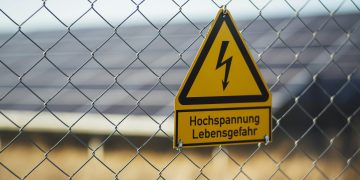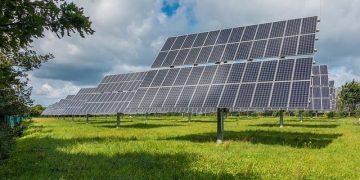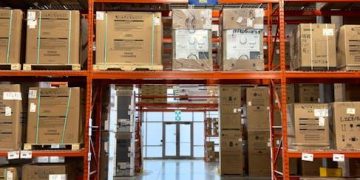In a world increasingly reliant on renewable energy, solar power stands as a beacon of hope, promising a cleaner and more sustainable future. Yet, as the sun rises on this burgeoning industry, shadows of supply chain delays loom large, threatening to eclipse progress. These delays, driven by a tangled web of global disruptions, have sparked a heated debate: should solar companies be held accountable for circumstances often beyond their control? As we navigate this complex landscape, it is crucial to explore the multifaceted dimensions of responsibility, fairness, and innovation in an industry striving to illuminate the path toward a greener tomorrow. Join us as we delve into the intricacies of this pressing issue, examining the arguments for and against penalizing solar companies for supply chain setbacks, and pondering what this means for the future of renewable energy.
Impacts of Supply Chain Disruptions on Solar Industry Growth
The solar industry, a beacon of hope for sustainable energy, has not been immune to the tremors of global supply chain disruptions. Manufacturing delays, scarcity of essential materials, and increased shipping costs have created significant hurdles, threatening to slow down the momentum of this critical sector. Companies have been grappling with the unpredictability of component availability, often facing lengthy lead times that push project timelines beyond anticipated limits. As the demand for solar installations continues to soar, the pressure on supply chains to keep pace is mounting, leaving industry leaders pondering how to navigate these choppy waters.
- Resource Scarcity: Key components like polysilicon and solar glass are facing shortages.
- Increased Costs: Shipping and logistic expenses have surged, impacting overall project budgets.
- Delayed Timelines: Unforeseen disruptions have led to postponed project completions.
As stakeholders deliberate on the consequences, the question arises: should solar companies be held accountable for these external delays, or is it a shared responsibility? The answer could reshape the industry’s approach to risk management and partnership dynamics. Balancing accountability with an understanding of global challenges might pave the way for more resilient and adaptive supply chain strategies.

Analyzing Accountability: Are Solar Companies to Blame for Delays
When considering the complexities of supply chain logistics, it’s crucial to recognize that solar companies are just one part of a much larger system. While they play a significant role in delivering solar solutions, various factors can contribute to delays, including but not limited to:
- Global Supply Chain Disruptions: Unpredictable events such as natural disasters, political instability, or pandemics can lead to significant delays.
- Manufacturing Bottlenecks: The production of solar panels involves intricate processes that can be stalled by equipment malfunctions or shortages of raw materials.
- Regulatory Hurdles: Navigating through the maze of permits and regulations can cause unforeseen slowdowns.
Given these complexities, assigning blame solely to solar companies might be oversimplifying the issue. Instead, a more holistic approach could be beneficial, focusing on enhancing communication and collaboration across the entire supply chain. Such strategies could include increasing transparency, investing in local manufacturing capabilities, and fostering stronger relationships with suppliers and regulatory bodies. This way, the entire ecosystem can become more resilient and better equipped to handle inevitable disruptions.

Exploring Alternatives: Mitigating Supply Chain Risks in Solar Sector
In the dynamic realm of solar energy, the reliance on global supply chains is both a strength and a vulnerability. Exploring alternative strategies becomes crucial to mitigate risks and maintain project timelines. One approach is diversifying supplier networks, ensuring that companies are not overly dependent on a single region or vendor. This can be achieved by cultivating relationships with multiple suppliers across different geographies, thereby spreading risk and enhancing resilience.
Another effective strategy is investing in inventory buffers. While this may increase short-term costs, it can protect companies from sudden supply disruptions. Additionally, leveraging digital tools for supply chain management can offer predictive insights, enabling firms to anticipate potential delays and adjust accordingly. The integration of local manufacturing capabilities is also gaining traction as a way to reduce dependency on international suppliers, although this requires significant initial investment. Companies must weigh these alternatives carefully, balancing immediate costs with long-term sustainability.
- Diversify supplier networks
- Invest in inventory buffers
- Utilize digital supply chain tools
- Consider local manufacturing

Policy Recommendations for Enhancing Solar Supply Chain Resilience
- Diversify Suppliers: Encouraging solar companies to expand their network of suppliers can significantly mitigate the risk of bottlenecks. By sourcing materials from multiple geographical locations, companies can reduce dependency on a single supplier or region, which can be particularly vulnerable to disruptions due to geopolitical tensions or natural disasters.
- Invest in Technology: Utilizing advanced technologies like blockchain for transparent tracking of materials and artificial intelligence for demand forecasting can enhance efficiency and predict potential delays in the supply chain. These technologies not only streamline operations but also provide real-time data to preemptively address issues.
- Foster Collaboration: Building strategic partnerships among solar companies, governments, and research institutions can lead to shared resources and knowledge. Collaborative efforts can promote innovation in supply chain management and collectively address challenges like regulatory hurdles and transportation inefficiencies.
- Strengthen Local Manufacturing: Incentivizing local production of solar components can reduce reliance on imports and shorten supply chains. Governments can play a pivotal role by offering tax breaks or subsidies to companies investing in domestic manufacturing, thus fostering a more resilient local industry.
- Enhance Risk Management Strategies: Solar companies should develop comprehensive risk management plans that include contingency measures for unexpected disruptions. These plans could involve maintaining strategic reserves of critical components and establishing flexible logistics networks to adapt quickly to changing circumstances.
In Retrospect
As the sun dips below the horizon, casting a golden hue over a world increasingly reliant on its energy, the question of accountability in solar supply chains remains suspended in the twilight. Should the burden of delays fall squarely on the shoulders of solar companies, or is it a shared responsibility, woven into the complex tapestry of global commerce? As we navigate this evolving landscape, the dialogue must continue, drawing voices from every corner of the industry, policymakers, and consumers alike. Only through collaboration and innovation can we hope to illuminate a path forward, ensuring that the promise of solar energy is not eclipsed by the shadows of its challenges. As we conclude this exploration, let us remain open to the myriad possibilities that lie ahead, ever mindful of the delicate balance between progress and responsibility.


































